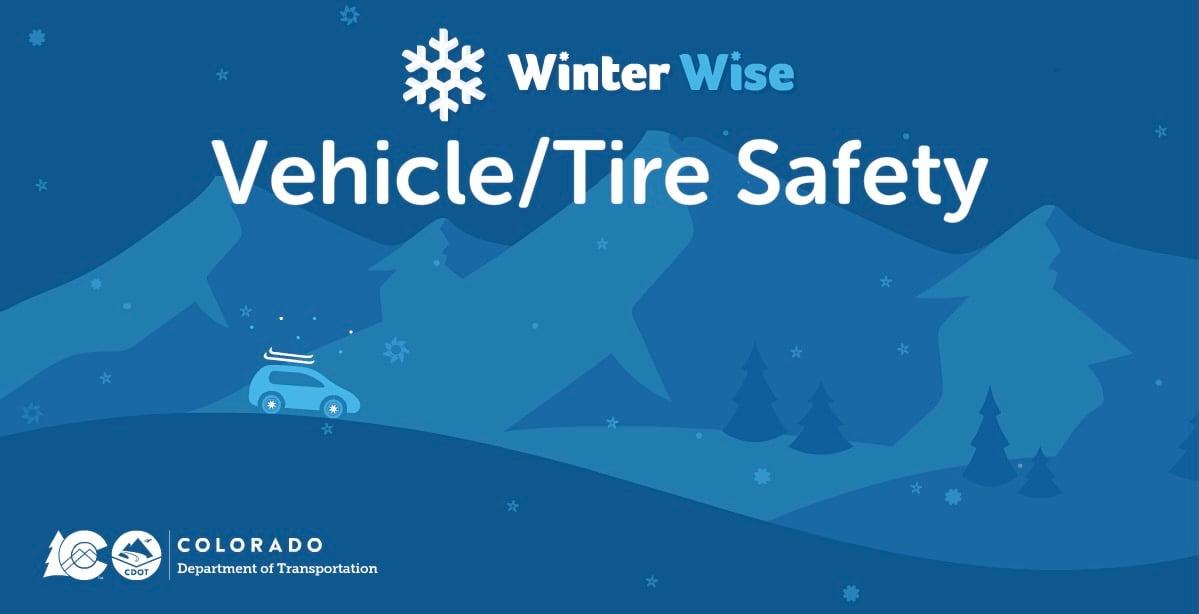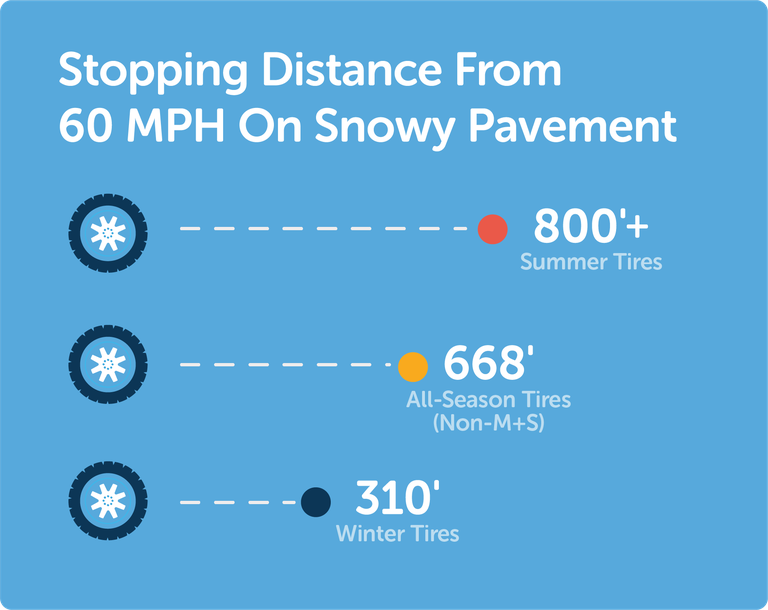Vehicle & Tire Safety


Safe Driving Tips
What Tires are Safe?
When it comes to snow or ice on the road, certain tires are safer because they provide better traction in winter conditions. Consider investing in safety by having a set of winter-appropriate tires so you’re prepared for any conditions Colorado throws at you. Below is a guide to approved winter tires — all of these tires are Traction Law compliant as long as they have a minimum of 3/16-inch tread depth:
- Winter Tires (mountain-snowflake icon)
- Winter tires are safest for snowy and icy conditions and are recommended for driving in winter weather. Tread patterns in winter tires provide extra traction and stability, while rubber compounds help the tire stay soft in cold temperatures for superior grip. All winter tires will have a mountain/snowflake icon and an M+S icon.
- All-Weather Tires
- All-weather tires are considered safe in winter conditions, particularly conditions with heavy rain, slush or wet snow. Tread patterns in all-weather tires provide extra traction and stability, while rubber compounds allow the tire to stay flexible for various temperatures for grip on both wet and snowy roads and dry asphalt. Thus, all-weather tires are efficient year-round.
- Mud and Snow Tires (M+S icon)
- Mud and snow tires are all-season tires that provide better starting, stopping and driving performance in snowy conditions than non-mud and snow tires. M+S tires are acceptable in light snow but are limited in their capabilities compared to winter tires.

If a Traction Law is called, your vehicle’s tires must meet Colorado’s requirements. The penalty for non-compliance includes a $50 fine and $17 surcharge.

Find Safe Tires Near You
CDOT has teamed up with tire partners across the state to help drivers find reliable tire shops and discounts in their area. Use the interactive map below to find tire shops and available deals near you.
If you represent a tire shop in Colorado and would like to be included on this map, please visit bit.ly/CDOT-tire-database to complete the Tire Partner Registration Form.
